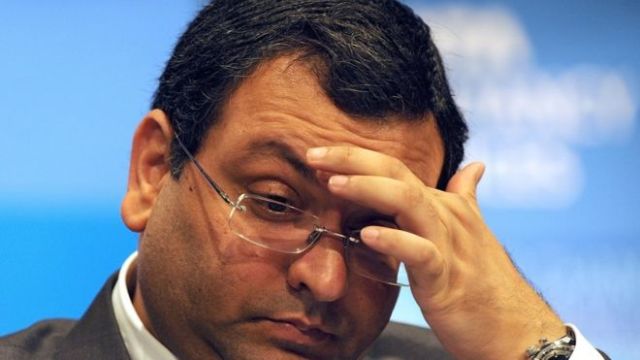-
a look at the Tata crisis in India
(BBC) Imagine you work for a company that has been engulfed in a bitter power struggle for weeks.
Your chairman was unceremoniously sacked. The management feud has divided directors. Meanwhile your customers just don’t know what to think.

And to cap it all off, despite the spat being played out in the world’s media with a to-and-fro of insult and insinuation, the dumped boss is still very much part of the company.
Sounds pretty horrendous, but that’s the reality for 660,000 staff employed by India’s Tata Group.
It is the country’s largest conglomerate, with stakes in more than 100 independent companies, many of which bear the Tata brand. And still at the helm or on the board of some of the most high-profile Tata businesses is Cyrus Mistry, the ousted chairman.
‘Tarnished’ reputation
The saga, which saw Mr Mistry unexpectedly replaced by his predecessor and company patriarch Ratan Tata, has been a sorry chapter in a usually proud 148-year history of the Tata Group.
So with the fallout of this ugly public ousting still swirling, how do you go to work each day, keeping your chin up and your head down?
Not easily, some say.
“There’s a great sense of pride in being a staff member of a Tata company and that follows from the ethical standards that the senior leaders have held themselves to,” says Prof Kulwant Singh from the NUS Business School in Singapore.
“All these events have tarnished Tata’s reputation and that must affect morale and belief in the Tata Group.”
And while it is human instinct to pick sides, that is difficult for employees – not least because it’s not entirely clear yet who’ll come out on top.
“The staff are caught in the middle and they’re watching how this plays out but they won’t want to interfere,” says Nitish Jain, president of the SP Jain School of Management.
“I think it’s obvious that the staff are quite rattled, they want clarity sooner rather than later but they have no choice but to be patient.”
Not straightforward
Patience will be crucial. The Tata Sons board met on Thursday to strip Mr Mistry of proxy powers that let him attend shareholder meetings of the main Tata operating companies.
But wrestling control away from Cyrus Mistry may not be so straightforward. His family has been a major investor since the 1930s, and controls companies holding 18% of Tata Sons. And crucially Mr Mistry still has plenty of support.
That explains why, despite everything that has gone on, he is still chairman of Tata Chemicals as well as Indian Hotels, owner of the world famous Taj brand.
Tata Group may own a stake in each of those businesses, but they are separate legal entities, meaning Mr Mistry can only be removed by each company’s board.
That’s exactly what happened at Tata Global Beverages, for example, the business that runs the Starbucks franchise in India where he was chairman, and at another huge operation Tata Consultancy Services.
But directors at Tata Steel and Tata Motors still can’t decide whether to carry out the wishes from Tata headquarters and cut ties.
“There appear to be factions that have emerged within the boards of Tata companies,” says Prof Singh.
“At least some of these board members seem somewhat reluctant to follow through on Tata Sons’ attempt to oust him.”

























